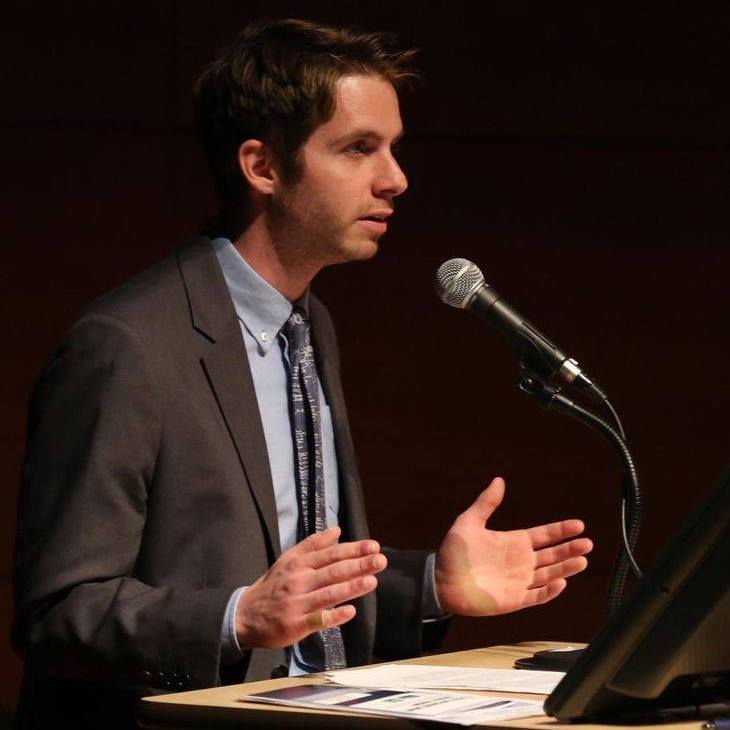Dylan Martello
 How was your major related to your current work?
How was your major related to your current work?
Given my current position as a Building Systems Analyst, my time obtaining a Bachelor of Science in Sustainability - Energy concentration at Stockton provided me with a technical background on various renewable energy technologies, sustainable building design, and applied engineering. I apply this technical background on a daily basis as I consult clients, most of which are architects and MEP engineers, on the most sustainable building system designs that are suitable over my range of projects. The emphasis on a client-focused approach energy consulting, a principle that is underscored in Stockton’s Sustainability program, allowed me to excel immediately in my current profession.
What was your career path that led you to your current position?
From my time entering undergrad at Stockton, I had always known I wanted to work in the field on sustainable energy. Towards my final two years in the program, I focused my prospective career path to either wind energy or sustainability building design. In my junior year, I engaged in a green building internship that lasted over a year and further sparked my interest in “passive building design”. Throughout my job search, I still considered both potential career paths; however, after receiving an offer to work in the Passive House team for Steven Winter Associates (SWA), I knew things couldn’t align much better.
Can you talk about the kinds of projects that new hires have worked on this year in your department?
After a relatively prompt and streamlined on boarding process, new hires in my department immediately take part working on project-specific work. In particular, energy modeling and on site inspection and testing are two common tasks for new hires. There is tremendous support to new hires by the respective supervisors, and the professional environment at SWA permits ample opportunity for questioning and learning the many aspects to sustainable building design. The supervisors at SWA are fundamentally non-micromanagers which allow new hires to both learn through self-driven engagement and feel comfortable in their new setting.
What were some of the most important skills that you learned in the program that helped you in internships as well as your current job?
While it is hard to narrow down the most important skills learned in Stockton’s Sustainability program, as there are many, I will do my best to focus on three. My most important skill I took away from the program is undoubtedly having the ability to learn from a situation both when I succeed, but more importantly, when I don’t succeed at a certain task. I am constantly faced with situations at work where either unfamiliarity or simply unforeseen circumstances causes a setback with a project. Instead of getting down on myself or complaining to someone else, I have can identify key takeaways from that situation that allow me to learn how I can be better in a similar situation in the future. My next most important skill is feeling comfortable working with clients. Throughout my time In the program, myself and team members had to repeatedly interact with clients, identify their specific needs for a project, and follow up with them to deliver a project on time. These interactions occur on a minute-to-minute basis at work. My skill coming in at third, is effective argument development. On a regular basis in the program, I was forced to create a focused thesis, develop a logical and flowing argument, and elaborate on this argument in an efficient and logical matter. This is much harder than it sounds! Given the demand for this skill in the program, especially towards the final two years, this was truly a case where practice made perfect, or at least much better than when I first entered the program. Effective and efficient argumentation is a core element of my everyday job.
Describe your favorite part about studying Sustainability at Stockton – either a fun/challenging
project, an experience, or working with a certain group.
My favorite part about studying Sustainability at Stockton was without a doubt the overall program comradery between students and faculty. Aside from the constant learning environment both in and out of the classroom, the people I was surrounded by on a daily basis were genuinely good people. I believe this has been essential to the success of the program. Good examples of this are the various sustainability festivals and outings on campus that saw the attendance of both Sustainability students and faculty. In particular, one for Harvest Fest, my band was performing out by the freshmen dorms, and not only were a large group of SUST students there hanging out, but so where Patrick and Tait, the only two full-time SUST faculty at the time. These types of events and interactions go a long way in building a level of comfort that I believe is prevalent among most if not all of the SUST students.


